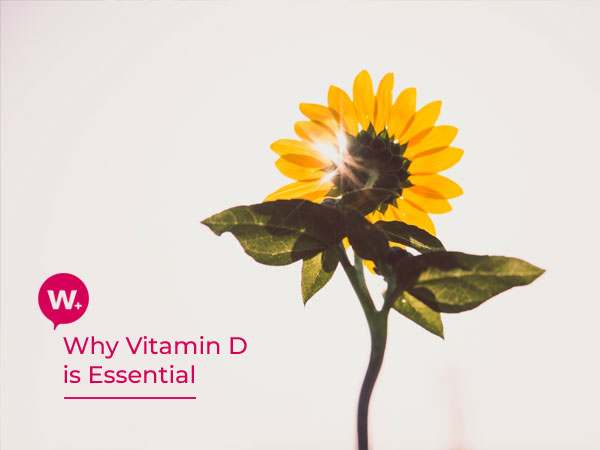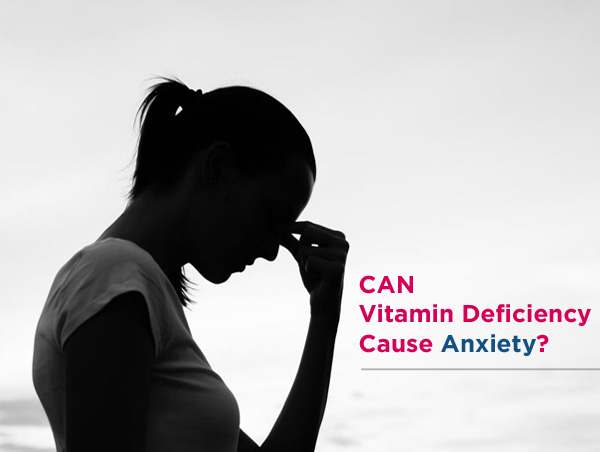Vitamin-D: Benefits & Facts
Vitamin-D is crucial for good health and many important bodily functions…
But in a society where processed foods are the norm and being indoors has hidden us from the sun’s rays; it’s even more important to pay attention.
Vitamin-D plays a huge role in bone growth, immune function, cell growth, and many other bodily processes. But, sometimes we experience symptoms that clearly reflect a deficiency and you must be aware of them to prevent long term, serious health issues. (1, 2)
Now, Vitamin-D is only available through limited foods like fatty fish (Salmon, sardines, mackerel), cheese, eggs, dark greens (Collard greens, spinach, kale) and beef liver. Sometimes it’s even added in certain foods like orange juice and milk.
But, most of the time getting it through food is not enough and we need supplements, plus sufficient time in the sun to maintain healthy levels. (2, 3)
But, if you’re not sure whether or not you’re getting enough Vitamin-D, we’ve listed 7 areas to be aware of when it comes to the potential need to correct a deficiency.
First, though, let’s quickly go over the importance of supplementation and sun rays…
Vitamin-D3 Supplementation and Sunshine
To make sure you’re getting sufficient amounts of Vitamin-D, follow the recommendation of a minimum 600 International Units (IU) per day if you’re 70 and under, or 800 IU if age 71 and older.
But, this is a conservative number with recent recommendations being even high, at 1,000-2,000 IU per day. But it really depends on your geographic location (Since sunshine varies), current state of health, and current Vitamin-D levels. (2)
Now, you can get Vitamin-D through multivitamins and/or just Vitamin-D supplements.
And/or you can get Vitamin-D through plenty of sunshine and Ultraviolet-B rays (UVB). But there’s no one-size-fits-all for the time needed in the sun since it really depends on your skin tone and current Vitamin-D levels. However, getting at least 15 minutes of sun rays per day should be appropriate for most people. (4)
But, you don’t want to stay in the sun too long as this can cause skin damage and possibly cancer.
Here are 6 signs of possible Vitamin-D deficiency…
1. You Have Osteopenia
Osteopenia is likely a sign of both Vitamin-D deficiency and aging. But, bone degeneration is kind of normal when the body goes through the inevitable process of aging. (5)
But it’s a condition where your bones start to weaken over time (Although not full-fledged Osteoporosis) and can result in Osteoporosis if not addressed.
Now, the function of Vitamin-D in relation to bone health is to help absorb calcium which actually builds bone tissue. So, it’s a good idea to take the two together in an effort to prevent the weakening of bones, to potentially prevent Osteopenia, Osteoporosis (Disease of mature bones) and even Rickets (Disease of growing bones). (6)
Osteoporosis occurs when bone tissue growth cannot occur fast enough to offset the degenerating bone tissue. Remodeling causes osteoid (Formation) and this is what builds the bone but this process is overpowered by the bone disease. (7)
Rickets, on the other hand, is usually a direct result of Vitamin-D deficiency (Unless a skeletal problem). It occurs often in children where the bones soften but a diet and supplementation, with additional sunlight, will most likely solve the issue. (8)
2. You’re Always Getting Sick
Do you just never feel well? Well, you might need more Vitamin D to strengthen your immune system. A study showed that immune system cells respond to the ameliorative effects of Vitamin-D, therefore improving autoimmune disease. (9)
There’s a strong correlation between Vitamin-D deficiency and autoimmune disease among most suffers and this helps to identify the main cause in an effort to cure it.
Now, autoimmune disease can cause a variety of infections, diseases, growth issues, and several other issues. But you don’t want to experience these chronic conditions if they are entirely preventable for most people. (10)
However, consulting a Doctor is always recommended rather than just trying to purely self-diagnose as some conditions may require more extensive treatments.
But you should make sure to take preventative action by getting your daily dose of Vitamin-D to keep your immune system up and running efficiently.
3. Your Hair is Falling Out
Nobody wants to lose their luscious locks and you don’t necessarily have too…
Vitamin-D deficiency has been linked to hair loss and if you can prevent it then you should.
One study showed a vitamin-D deficiency in women who experienced hair loss when compared to women with no hair loss. This is important in identifying a possible root cause of the deficiency and can potentially be a step toward treating this undesirable inconvenience. (10)
Another study showed a strong correlation between Vitamin-D deficiency and alopecia areata (Hair loss). This study suggested that Vitamin D supplementation may be a therapeutic option for hair loss, and female pattern baldness. (11, 12)
4. You Struggle With Depression/Mood Disorders
Depression affects more than 16 million people in the U.S. and it’s also the leading cause of disability which is really alarming. And anxiety is the leading mental disorder in the U.S. affecting over 40 million adults. But the two often go hand in hand. (13)
The symptoms of both can be serious and include:
- Suicidal thoughts
- Low energy
- Elevated stress hormones will weaken the body
- Drastic and frequent mood changes
- Loss of interest
There is a convincing correlation of mental illness and Vitamin-D deficiency, although science has not fully concluded this and studies are limited. However, it’s still a good idea to get enough Vitamin-D and be safe than sorry. (14)
5. Excessive Fatigue
Let’s face it; we all get exhausted after a long work day, or when we don’t get our 7-8 hours of sleep every night. But, if everything is in check and we still suffer from debilitating fatigue, then this is cause for concern.
Now, studies show that the prevalence of Vitamin-D deficiency is high in people who fatigue and stable chronic medical conditions. But treatment through Vitamin-D significantly improves these issues. This could be a simple solution for people who complain of fatigue and daytime sleepiness. (15, 16)
So, if you find yourself drained when there’s no visible cause, then do yourself a favor and look into supplementing with at least 600 IU of Vitamin-D. But, you should also spend at least 15 minutes in the sun per day to be extra safe.
6. Chronic Pain
Many people worldwide suffer from chronic pain like muscle fatigue, musculoskeletal pain, headaches, etc.
And studies show a high prevalence in the correlation between people with low levels of Vitamin-D and chronic pain. Now, there is no conclusive evidence to support this as a cure-all option, but there’s a good chance it could help to ease the severity of chronic pain in sufferers. (17)
Studies also suggest that Vitamin-D supplementation is a cheap and simple way to potentially help with chronic symptoms.
7. Impaired Wound Healing
There’s evidence to support that Vitamin-D plays a big role in skin and wound healing.
Now, vitamin-D is known for its anti-inflammatory properties and this could be the reason for its role in wound healing. A study on patients with diabetic foot ulcer showed Vitamin-D to possibly have a positive effect on wound healing through glycemic control. (18)
So, although the science is not clear and more studies must be conducted to come to a conclusion. Vitamin D may be a very effective defense against impaired wound healing.
Get More Vitamin-D For Optimal Health
It’s pretty apparent that Vitamin D plays a big role in our ability to function daily. But many people don’t get enough which causes a whole lot of health problems and inconveniences, including the ones mentioned above…
Fortunately, though, many of these symptoms and conditions are reversible when Vitamin D levels are increased through supplementation, more sun time, and even certain foods. But your best bet is to get sufficient amounts through all three.
So, if you find yourself experiences any of these signs of Vitamin D deficiency, make sure to up your doses. But you should always consult with a Doctor to make sure these symptoms are not the cause of something more serious.
References
- Office of Dietary Supplements – Vitamin D. ods.od.nih.gov.
- Mayo Clinic Q and A: How much vitamin D do I need?
- Calcium and Vitamin D: Top Food Sources. WebMD.
- Boston, 677 Huntington Avenue; Ma 02115 +1495‑1000 (18 September 2012). Vitamin D and Health. The Nutrition Source.
- What Is Osteopenia?. WebMD.
- Rickets and Osteoporosis | Iowa State University. vetmed.iastate.edu.
- What is Osteoporosis? | International Osteoporosis Foundation. www.iofbonehealth.org.
- Rickets – Symptoms and causes. Mayo Clinic.
- Aranow, Cynthia (2011-8). Vitamin D and the Immune System. Journal of investigative medicine : the official publication of the American Federation for Clinical Research. 59 (6): 881–886. doi:10.231/JIM.0b013e31821b8755. ISSN 1081-5589. PMC PMCPMC3166406. PMID 21527855.
- Primary immunodeficiency – Symptoms and causes. Mayo Clinic.
- Gerkowicz, Agnieszka; Chyl-Surdacka, Katarzyna; Krasowska, Dorota; Chodorowska, Grażyna (7 December 2017). The Role of Vitamin D in Non-Scarring Alopecia. International Journal of Molecular Sciences. 18 (12). doi:10.3390/ijms18122653. ISSN 1422-0067. PMC PMCPMC5751255. PMID 29215595.
- Alopecia areata | American Academy of Dermatology. www.aad.org.
- Facts & Statistics | Anxiety and Depression Association of America, ADAA. adaa.org.
- Penckofer, Sue; Kouba, Joanne; Byrn, Mary; Ferrans, Carol Estwing (2010-6). Vitamin D and Depression: Where is all the Sunshine?. Issues in mental health nursing. 31 (6): 385–393. doi:10.3109/01612840903437657. ISSN 0161-2840. PMC PMCPMC2908269. PMID 20450340
- Roy, Satyajeet; Sherman, Anthony; Monari-Sparks, Mary Joan; Schweiker, Olga; Hunter, Krystal (2014-8). Correction of Low Vitamin D Improves Fatigue: Effect of Correction of Low Vitamin D in Fatigue Study (EViDiF Study). North American Journal of Medical Sciences. 6 (8): 396–402. doi:10.4103/1947-2714.139291. ISSN 2250-1541. PMC PMCPMC4158648. PMID 25210673
- Johnson, Kevin; Sattari, Maryam (7 October 2015). Vitamin D deficiency and fatigue: an unusual presentation. SpringerPlus. 4. doi:10.1186/s40064-015-1376-x. ISSN 2193-1801. PMC PMCPMC4628075. PMID 26543719.
- Kragstrup, Tue Wenzel (2011-3). Vitamin D supplementation for patients with chronic pain. Scandinavian Journal of Primary Health Care. 29 (1): 4–5. doi:10.3109/02813432.2010.530738. ISSN 0281-3432. PMC PMCPMC3347929. PMID 21073396.
- Vitamin D and Skin Health. Linus Pauling Institute. 7 November 2016.
This article was previously published on Fitness Volt.






,